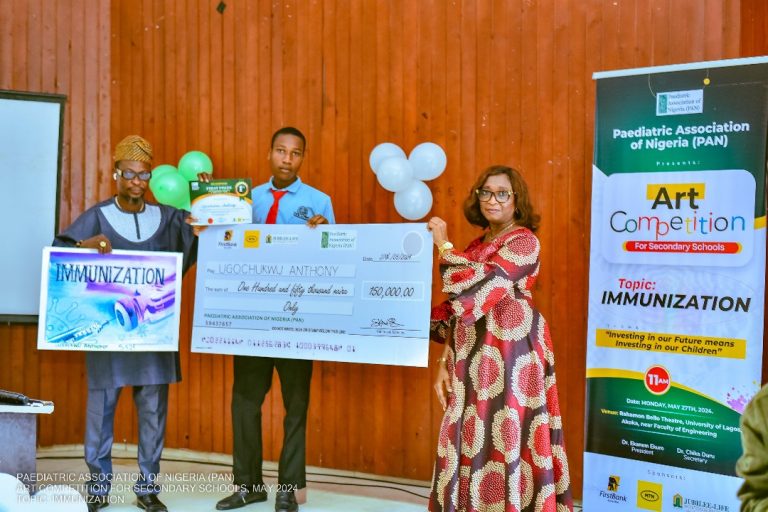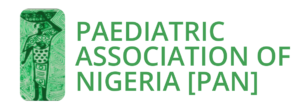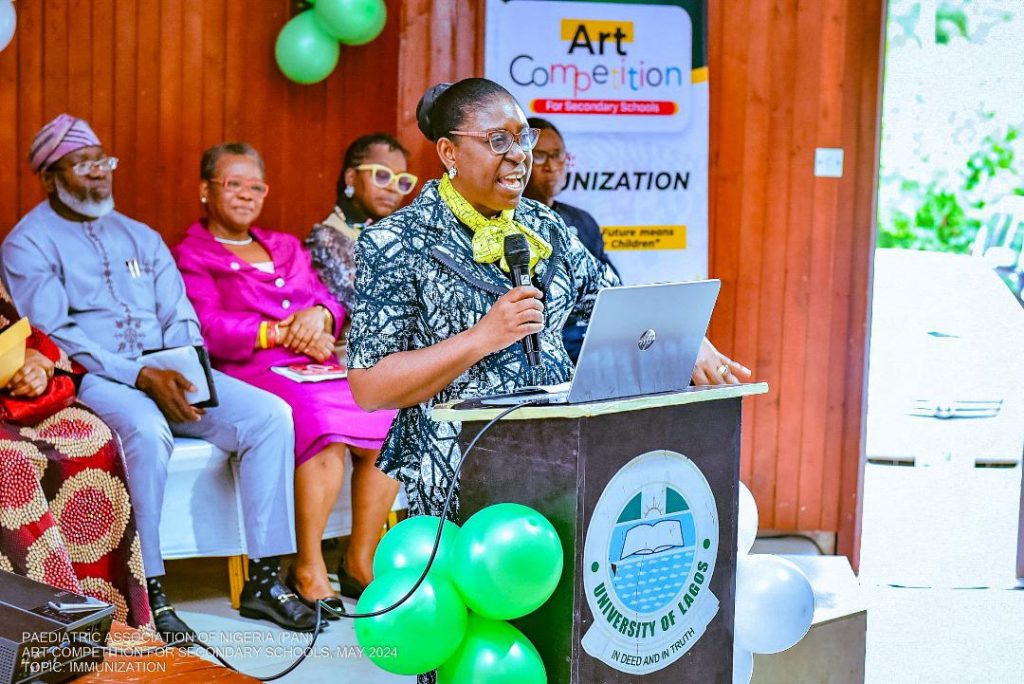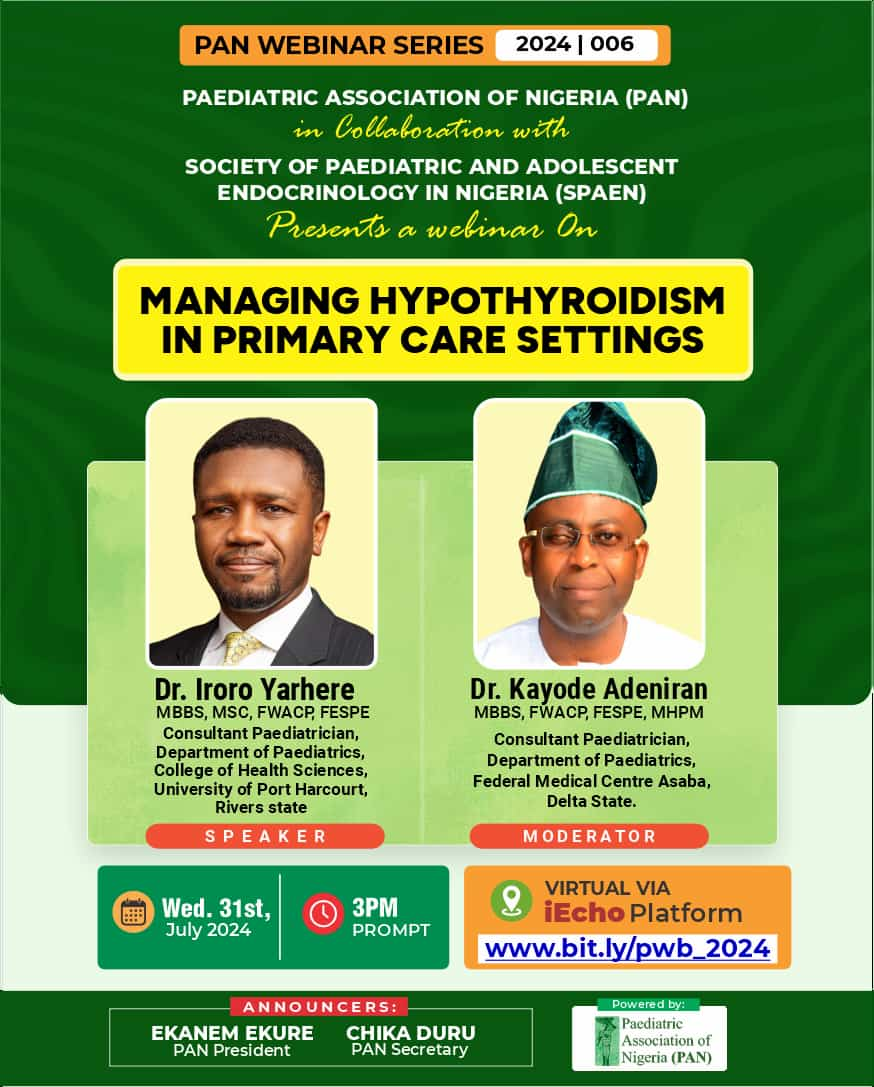
President of the Paediatric Association of Nigeria, Prof. Ekanem Ekure has said that Nigeria disproportionately accounts for 2.2 million of the 4.4 million zero-dose children in West Africa, the highest in the world.
Ekure disclosed this while speaking at the Paediatric Association of Nigeria’s Children’s Art Competition on Immunisation to commemorate the 2024 Children’s Day in Lagos.
According to Ekure, only 23 per cent of children were fully immunised according to the Expanded Programme on Immunization (EPI) schedule in 2021.
“The statistics of children who have received all the vaccines in the national program is 23 percent which is low. It is not surprising that our under-five mortality rate is so high.
“We have the highest under-five mortality rate in the world, and unfortunately, these children are dying from diseases that can be prevented, for which the government has made vaccines available for free.
“Zero-dose children are children who have not received any immunisation. West Africa has 4.4 million zero-dose children, and Nigeria has 2.2 million zero-dose children, which is very sad.
“The top areas where those zero-dose children tend to be more located are the urban slumps, conflict areas, and remote and hard-to-reach communities in Nigeria. So a lot has to be done to reach these children in those communities to ensure that they receive these immunisations.”
Speaking on the choice of the theme “Investing in our Future means investing in our Children,” Ekure said: “Children are the future of any nation. Therefore, any effort to boost immunisation in children is securing the future of our nation. Coincidentally, the second phase of the human papillomavirus vaccination in Nigeria starts today in 21 states and will last for a week. This is for young girls aged 9–14 years to prevent cervical cancer and safeguard their future.”
She stated that traditional assessments miss a child’s creativity, adding that, they launched the competition to let children express the importance of immunisation through art.
Ekure said the children harnessed their creativity to express the importance of health and well-being through their beautiful artworks.
On what can be done to change the narrative and increase uptake, Ekure maintained that immunisation is everybody’s business. She said the government, caregivers, healthcare workers, the community, religious leaders, and traditional rulers have a role to play.
“Healthcare workers need to learn to treat caregivers decently and politely when they come for immunisation. They should also do things promptly so that people don’t have to waste all day waiting for the immunisation. Everyone must be an immunization champion. Let’s keep making lots of noise about immunisation. We all need to put our hands on deck to reduce this abysmally low rate of immunisation optics.”
In her keynote speech, Vice Chancellor UniLag Professor Folasade Tolulope Ogunsola said their role was to nurture the children to grow up and become responsible leaders.
Ogunsola who was represented by Professor Adebayo Babalola urged the children to grow up and become responsible adults.
In her presentation titled “Facts in Immunisation” Dr Iretiola Fajuolu, a paediatrician neonatologist and associate professor of paediatrics at the College of Medicine University of Lagos described immunisation as God’s gift to man.
“It is our corporate social responsibility and it is a way of getting ourselves protected from harmful disease. Immunization is a very viable tool to prevent infectious diseases. Vaccines have been made available for over thirty diseases, which are infectious diseases and what vaccines do.
Fajuolu said: “Our indexes are still very low. Ignorance is one major reason why our people do not go for vaccinations. So we need all hands on deck to educate people. We need the media to educate Nigerians on the importance of immunisation.
The government is doing a lot to make these vaccines available in conjunction with global partners who have vaccines available. The vaccines are expensive but some people have paid for them, it is a shame that we will have these vaccines and they are not being utilised, especially because the diseases that these vaccines protect against are deadly, they are the major killers of children. This year we have asked children to do artwork related to immunisation.”
The high point of the programme was the emergence and presentation of awards to the winners of the Children’s Art Competition. Master Ugochukwu Anthony SS2C from National College Gbagada emerged as the winner with 29 out of 40 points. Anthony received a cheque of one hundred and fifty thousand.
Akinsanya Ibukuoluwa an SS 3 student from Igbobi College Yaba emerged as the as the first runner-up with 24 points, while Olawale Owonikoko emerged as 2nd runner-up with 23 points.
Other schools that participated in the Paediatric Association of Nigeria’s Children’s Art Competition on Immunization to commemorate Children’s Day in 2024 are Ireti Junior School, Methodist Girls High School, National College Gbagada, Lanre Awolokun School, Fountain Heights, Ifako Comprehensive Senior High School, Igbobi College, Lagos Progressive, Bishop Howells, and the Lagoon School.





